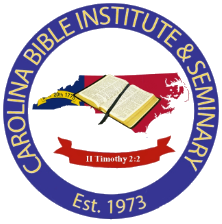LEADING A SMALL CHURCH OVERVIEW
The “Leading a Small Church” course is a specialized study designed to equip pastors and leaders with the unique skills and insights required for effective leadership in small church contexts. Recognizing the distinctive challenges and opportunities inherent in smaller congregations, this course delves into practical strategies, pastoral care, and strategic planning tailored to the dynamics of a small church setting. Students will explore biblical principles, organizational management, and community engagement strategies to foster vibrant and thriving small church communities.

Small church
The “Leading a Small Church” course aims to equip pastors and leaders with the practical skills and theological insights needed to navigate the complexities of leadership in smaller congregational settings. By focusing on the particular dynamics of small churches, this course prepares leaders to foster vibrant, spiritually nurturing, and engaged communities within the context of a smaller congregation.
DETAILS
- Small Church Case Studies:
- Analyze case studies that present real-world scenarios in small church leadership, applying theoretical principles to address common challenges and opportunities.
- Strategic Ministry Plan for a Small Church:
- Develop a strategic ministry plan specifically tailored to a small church context, incorporating principles learned in the course to address the unique needs and goals of the congregation.
- Community Engagement Project:
- Undertake a community engagement project, applying outreach strategies learned in the course to connect the small church with its local community.
- Leadership Development Proposal:
- Create a proposal for leadership development within the small church, identifying key areas for growth and strategies for equipping emerging leaders.
- Final Reflection Paper:
- Write a reflection paper summarizing key takeaways from the course, personal insights gained, and an action plan for implementing learned principles in small church leadership.
- Class Participation and Discussions:
- Actively engage in class discussions, sharing experiences, insights, and questions related to the unique challenges and opportunities of leading a small church.
CURRICULUM
- Understanding Small Church Dynamics:
- Explore the unique dynamics of small churches, examining the challenges and advantages associated with smaller congregations, including close-knit communities, limited resources, and intimate relationships.
- Pastoral Care in Small Communities:
- Develop pastoral care skills tailored to the specific needs of small church congregations, addressing the close relationships and individual concerns often present in smaller communities.
- Strategic Planning for Small Churches:
- Learn strategic planning techniques that are practical and applicable to small churches, emphasizing the importance of vision, mission, and goal-setting in a context of limited resources.
- Effective Communication in Small Churches:
- Enhance communication skills with a focus on the intimate nature of small churches, emphasizing relational communication, active listening, and fostering community engagement.
- Worship and Discipleship in Small Settings:
- Explore worship and discipleship strategies that resonate with the dynamics of smaller congregations, considering creative and participatory approaches that foster spiritual growth.
- Community Engagement and Outreach:
- Develop strategies for effective community engagement and outreach in the context of a small church, emphasizing the role of the church within its local community.
- Leadership Development in a Small Church:
- Focus on developing leaders within the small church, recognizing the importance of empowering and equipping volunteers, and nurturing a culture of shared leadership.
- Financial Stewardship in Small Churches:
- Address financial stewardship and resource management in small churches, exploring practical approaches to budgeting, fundraising, and financial sustainability.
PREREQUISITES
- Introduction to Christian Theology:
- Completion of foundational courses in Christian theology to provide a theological framework for understanding leadership within the context of Christian ministry.
- Biblical Studies:
- Successful completion of introductory courses in biblical studies, ensuring a basic understanding of key biblical narratives and teachings that will be referenced in the course.
- Christian Ethics:
- Background in Christian ethics to prepare students for discussions on ethical leadership within the context of Christian ministry.
- New Testament Survey (Recommended):
- Familiarity with the New Testament, particularly teachings on pastoral care, leadership, and community engagement, is recommended for a more nuanced understanding of biblical principles.
- Introduction to Christian Ministry:
- Completion of an introductory course in Christian ministry to provide a foundational understanding of the organizational and practical aspects of ministry.
- Leadership in Christian Ministry (Recommended):
- Familiarity with general leadership principles in Christian ministry can provide a helpful foundation for understanding leadership dynamics in small church contexts.
- Communication Skills:
- Proficiency in basic communication skills, as effective communication is a critical aspect of leading a small church where personal relationships play a significant role.
- Research and Writing Skills:
- Proficiency in research and writing skills to complete assignments, reflections, and projects that require thoughtful analysis and articulation of leadership concepts specific to small church settings.
- Collaboration and Teamwork Skills:
- An understanding of the value of collaboration and teamwork, as the course will emphasize the importance of building and leading effective teams in the context of a small church.
- Experience or Involvement in Small Church Ministry (Optional):
- While not mandatory, students with prior experience or active involvement in small church ministry may find the course particularly relevant, bringing practical insights to discussions and assignments.
These prerequisites are designed to ensure that students entering the “Leading a Small Church” course have a foundational understanding of Christian theology, biblical principles, and ethical considerations, along with the necessary skills for effective communication, collaboration, and leadership in a ministry context. This foundational knowledge will enable students to engage with the specialized leadership concepts and discussions presented in the course effectively.








